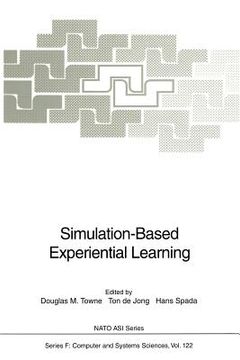Synopsis "simulation-based experiential learning (in English)"
In October of 1992 an assembly of researchers in simulation and computer models for instruction convened in Bonas, France, to learn from one another in a non-automated environment. The event was the Advanced Research Workshop entitled The Use of Computer Models for Explication, Analysis, and Experiential Learning. Sponsored by the Scientific Affairs Division of NATO, this workshop brought together 29 leading experts in the field loosely described as instruction and learning in simulation environments. The three-day workshop was organized in a manner to maximize exchange of knowledge, of beliefs, and of issues. The participants came from six countries with experiences to share, with opinions to voice, and with questions to explore. Starting some weeks prior to the workshop, the exchange included presentation of the scientific papers, discussions immediately following each presentation, and informal discussions outside the scheduled meeting times. Naturally, the character and content of the workshop was determined by the backgrounds and interests of the participants. One objective in drawing together these particular specialists was to achieve a congress with coherent diversity, i.e., we sought individuals who could view an emerging area from different perspectives yet had produced work of interest to many. Major topic areas included theories of instruction being developed or tested, use of multiple domain models to enhance understanding, experiential learning environments, modelling diagnostic environments, tools for authoring complex models, and case studies from industry.

